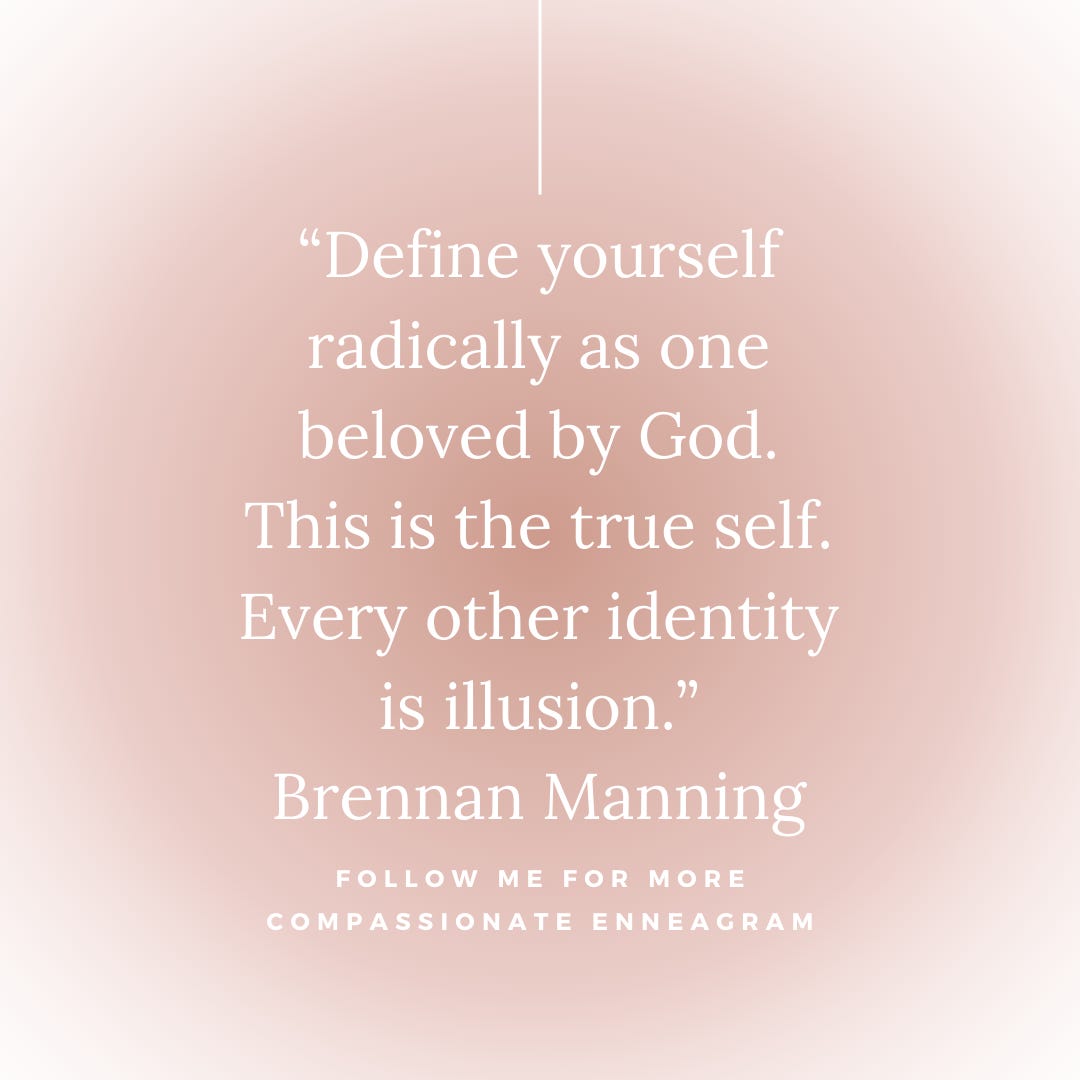Reconstructing Your Belovedness
So many of us were taught that God is disappointed in us and could never love us as we are. This is a teaching that must be reconsidered if we are to grow and heal and become our truest selves.
The beliefs that are in the way…
“I just don’t believe God loves me.”
“I know it in my head but it is so hard to believe it.”
“I don’t feel loved by God.”
“I don’t think I am good enough for God.”
“God must be disappointed in me.”
These are just a few of the statements I have heard from my clients as it relates to their faith and their sense of self. The majority of them were brought up in Evangelical American churches that stressed obedience, the worthlessness of each of us humans, and our overall indebtedness to God for not destroying us.
Each of the people who said this have a hard time believing they are lovable or named Beloved by God because their faults and sinfulness was the first and last thing stressed in their faith traditions.
I am no different. After sitting through a day long conference on the torture Jesus went through on the cross, my 16 year old self was told I was the one who tortured Christ. I was the reason Jesus died. And for years I strove to not heap pain on Jesus by trying to be good enough.
Grace? Complete forgiveness? Freedom? These messages were foreign, scary, and confusing.
“If I believe I am fully forgiven and free, where does the freedom end? At one point will I go too far and sin too much and be…” my client trails off.
We are each so afraid that God’s grace isn’t real and isn’t enough and it is no wonder. Cancel culture, for many of us, started decades ago when our churches and families shunned siblings, cousins, aunts or uncles who stepped out of line. We saw our families boycott Disney or not let us play with children from different religions or races.
We worry if we love the “wrong” person, if we parent our kids our own way, if we believe something different from what we were brought up to believe, we will be unacceptable.
The deconstruction movement for many is an attempt to discover: am I really as unloved as I believe?
Fundamentalist teaching has named us as unworthy of love.
God names us who we are: Beloved.1
Enneagram teaching helps you travel from head knowledge of being lovable to the lived, embodied, heart knowledge of your Belovedness.
9 Truths of your Belovedness
Type 1: You are good, as you are.
Type 2: You are wanted, as you are.
Type 3: You are worthy, as you are.
Type 4: You matter, as you are.
Type 5: You are competent, as you are.
Type 6: You are supported, as you are.
Type 7: You have enough, as you are.
Type 8: You are strong enough, as you are.
Type 9: You are whole, as you are.
And for all types:
You are loved and lovable, as you are.
Maybe the message of your wing resonates more than your main type message. Maybe a message on the other side of the Enneagram resonates today. That’s fine. Take whichever message you need today. This exercise is not meant to determine your type but to affirm again and again:
You are Beloved, as you are.
And if you struggle to believe it, that’s okay too. I believe one day you can and you will.
It takes Practice
Our brains are like trails in a forest. We have directions that we travel over and over again until there is a well worn path that we hop onto without thinking about it. These trails are the brains messages and habitual behaviors. For example: It is far easier for me to believe there is something wrong with me than that I belong as I am (Type 4 messages).
Embracing that we are beloved requires forging a new path. Maybe you haven’t seen anyone do this before. Maybe creating this path requires leaving behind loved ones who choose to remain on the well-worn path.
Our bodies often rebel against our desire to create a new path. It feels safer to remain on the old one, even if the old one continues to drag us down.
This is why it is important to not travel alone.
If it weren’t for my mentors and counselors over the years, I would not question the false messages in my own brain but continue to assume that I was the problem.
These counselors gave me practices, questions to consider, new teachings that helped me discover: I am loved as I am.
They walked with me on these new trails with me until they were visible enough for me to take on my own.
And now, when I find myself on the old path, I have developed the awareness to recognize my surroundings (typically dark, dreary, and very scary) so I can turn around and go back to the new path.
Today, it is my joy as an Enneagram coach to be that guide for others. To help my clients forge their paths and to leave the old messaging behind for the truth of their belovedness.
Recently a client said to me, “I am realizing I don’t need a new way to try harder to be okay but I need to simply be myself.”
Yes! That’s exactly it.
Some questions to consider
What resonates from what is written above? What doesn’t?
Who is your guide? Are they taking you where you need to go?
Practice: Write down the Truth statement that you need from above. Keep it in front of you. Put aside any other statement that does not affirm this truth.
Do you want to talk to someone? I always offer free Enneagram coaching consultations. Or you can simply drop a note in the comments.
If you, like me, were brought up with proof from the Bible that you are worthless, it is helpful to find proof in the Bible that you are loved and worthy. Two verses that do this for me: Isaiah 43:1 and Galatians 2:20. Specifically in Galations: “I live by faith in the Son of God, who loved me and gave himself for me.” Jesus gave himself freely and willingly. Because he loved us (dare we return to John 3:16?). And really, there is so much more in Christ’s own life showing every person’s worthiness. We just need to learn to see it. But that is another post…





This is so good, Leah. So foundational. Thank you for your courage to fight for our transformation by the renewing of our minds <3